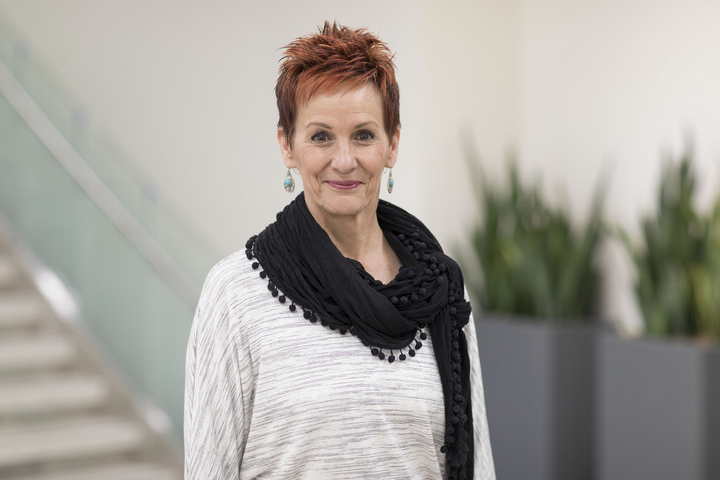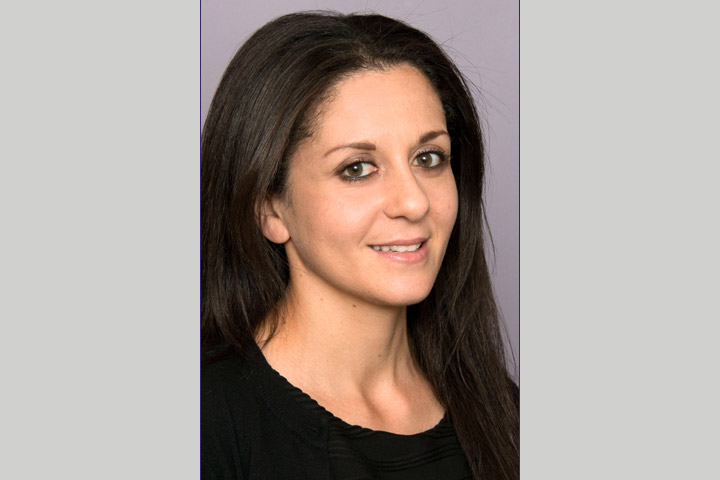Cancer Commons: Bringing a Nurse Navigator to Cancer Patients

When you receive a cancer diagnosis—pancreatic or any other type—what you really need is a skilled oncology nurse navigator to take your hand and guide you through the process.
Change is happening every day as scientists develop a deeper understanding of pancreatic cancer and identify effective treatments. Without a dedicated professional by your side, it’s tough to decide which options are best for your unique situation.
The professionals at Cancer Commons get it. Developed as a philanthropic effort that brings together patients, physicians, and scientists to help patients with advanced cancer identify the best treatments, Cancer Commons analyzes an individual’s case and then recommends clinical trial and off-label treatment options that may be appropriate for them, based on the scientific evidence. That’s not an easy task. “Everything we do is focused on the individual patient,” says Deborah Christensen, M.S.N., A.P.R.N., A.O.C.N.S., A.G.C.N.S.-B.C., O.C.N., Oncology Patient Navigator at Cancer Commons.
The Nurse Navigator’s Role at Cancer Commons
In traditional settings, oncology nurse navigators play a key role in caring for cancer patients. They not only ensure that the patient understands the diagnosis and recommended treatment, but they also provide support for family members and caregivers.
“It’s not a small job,” says Lola Rahib, Ph.D., Director of Scientific and Clinical Affairs and Lead Scientist in Pancreatic Cancer at Cancer Commons. And since Cancer Commons is a virtual organization that brings together patients, physicians, and scientists, the role of the patient (nurse) navigator is more complex. “My role is constantly evolving,” says Christensen.
Christensen contacts patients to learn more about their diagnosis and already-tried treatments, then queries them about what they need from Cancer Commons. She puts together a summary of each patient’s situation for Cancer Commons’ virtual tumor boards. Then a team of scientists, oncology physicians, and members of the virtual tumor boards work together to identify appropriate clinical trials for the patient.
The clinical trial system is a labyrinth of winding hallways and dead ends. So instead of providing patients with a list of 50 trials they have to sift through, a virtual tumor board provides a customized list of relevant trials based on the patient’s health, their tumor’s molecular alterations, and their treatment history.
“But treatment options aren’t only about eligibility,” says Christensen, who acts as a liaison and advocate for the patient, their loved ones, and their physicians. “We also ask questions like, how close are the trials to their home? Are they willing to travel for care? And how will participation impact the patient’s quality of life?”
Christensen’s responsibilities also include providing reassurance, education, and encouragement to patients and their family members. Previously tasked with managing nurse navigators for six different cancer centers, Christensen knows which resources to tap for patients and how to access them. She can help remove access barriers, address financial concerns, and help patients receive seamless and timely patient-centered care.
Virtual Tumor Boards at Cancer Commons
Cancer Commons is committed to democratizing cancer care for ALL patients, not just those who have every resource at their fingertips. They accomplish this through virtual tumor boards for cancer patients.”Unfortunately, convening a virtual tumor board is expensive. It takes a multiskilled team to make it happen, including staff to obtain and organize patients’ records, the physician panel, the scientists, data analysts, and the patient navigators,” Rahib says. “We’re not charging patients for these services and we’re brainstorming how we can continue this level of care by leveraging our philanthropy efforts.”
Both Rahib and Christensen maintain that the beauty of Cancer Commons lies in the fact that they’re able to provide an unbiased opinion based on scientific evidence. The patient is always the focus of these efforts. Pancreatic cancer patients have access to the virtual tumor board to review and assess their treatment options.
Unlike other support programs, Cancer Commons works directly with the patient, not the care team. That puts the patient in the driver’s seat. “My role is to complement the scientists’ work, and to help patients get the expert insight they need to receive the best care,” Christensen says.






